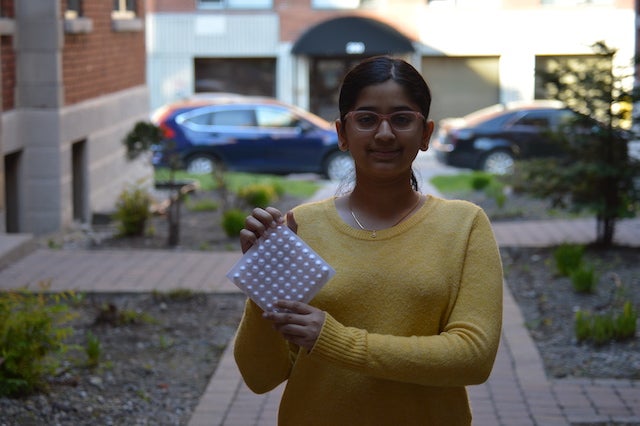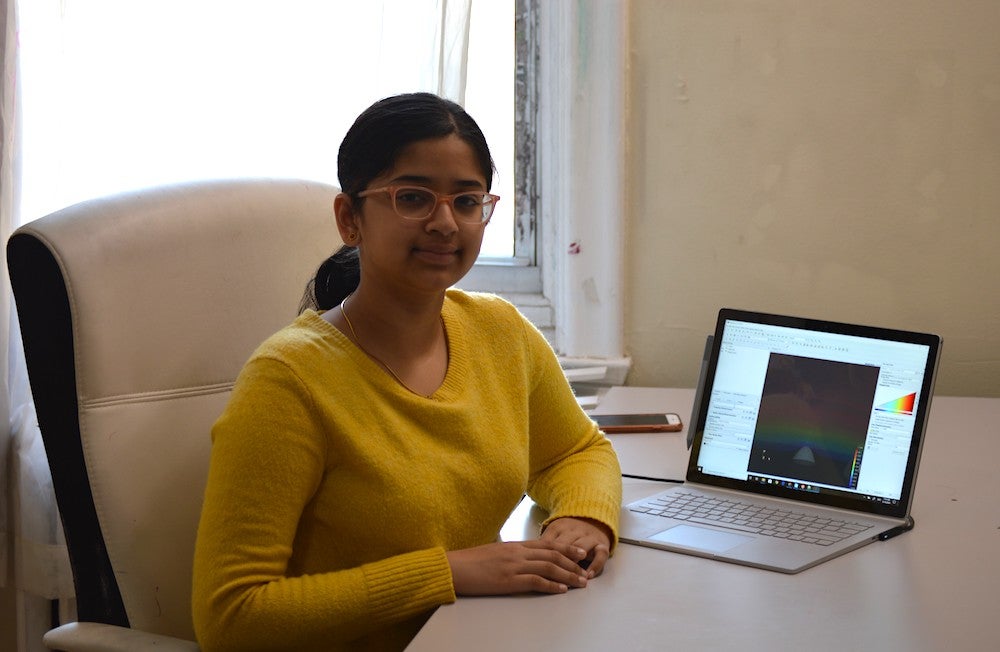Grade 10 LaurenHill Academy student connects Science Fair project to COVID-19

Harini Karthik, a Grade 10 student at LaurenHill Academy in St. Laurent, is entering the Youth Science Canada online Stem Fair 2020 with a project related to the topic of COVID-19.
After much disappointment that the Regional Science Fair was cancelled, Harini jumped on the opportunity to participate in this online national science fair (https://youthscience.ca/news/youth-science-canada-launches-online-stem-fair) to showcase her project. It goes live on May 19.
This project was at first intended to enhance the efficiency of solar panels by working on the material they are made of. To do so, it must be able to minimize friction (or drag) due to fluids, such as water and gases. By experimenting with different morphological structures (patterns at microscopic scale) of natural components, Harini was able to reduce drag significantly (around 83 percent) between springtail (a specific type of insect) and flat surface
“This concept of drag reduction using biomimetics could be applied in a wide range of real-world scenarios,” she said. “ For instance, COVID-19 spread could be lowered by increasing the elevation of surface by a few micrometers. Drag reduction concept will repel the fluid particles from the person's sneeze or cough in common surfaces like doorknobs. This way, the fluid droplets and viruses will not tend to remain on common surfaces where people often touch.”
Harini has been guided by her mentor Dr. Phillip Servio from McGill University and LaurenHill Science teacher Magy Dimitry. “This student cannot go unnoticed,” said Ms. Dimitry. “She’s 15 years old and did the work of a postgraduate student. She is by far the most enthusiastic student I know and very hard working. In order to do her project, she had to learn some calculus as well as the engineering and 3d printing softwares. Nothing stopped her. At only 15 years old, she worked alongside masters and PhD students in chemical engineering at McGill.
“Harini was and still is relentless at learning and diving deep into her research. I approached her in the spring of 2019 and since then - even during the summer- she worked on her research.”












